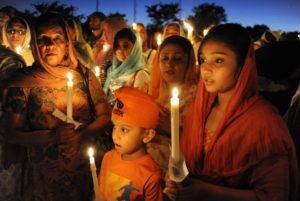The Office for National Statistics (ONS) have made recommendations for the content of the 2021 Census, which was published in a White Paper titled, ‘Help Shape Our Future: The 2021 Census of Population and Housing in England and Wales’.
The Network of Sikh Organisations (NSO) is delighted common sense has prevailed and the ONS has not recommended the inclusion of a Sikh ‘ethnic’ tick box for the 2021 Census. We’ve been strongly opposed to this ill-conceived campaign led by the Sikh Federation UK (SFUK) and the APPG for British Sikhs whose secretariat is the SFUK and Chair Preet Gill MP. The ONS has conducted significant research and consultation on this matter across the British Sikh community over a long period of time. They revealed focus groups conducted showed, ‘younger second-generation participants wanted to express their Sikh background through the religion question as this is how they expected Sikh identity to be recorded.’[i]
Our position has always been clear. Firstly, Sikhs are already recorded appropriately in the Census under religion. The SFUK suggested there might be an undercounting of Sikhs, because the religion question is voluntary. However, research commissioned by the ONS in 2017 found, ‘There is no indication from the findings that the religious affiliation and ethnic group questions are capturing different Sikh populations. All respondents who stated they were ethnically Sikh also stated their religious affiliation was Sikh. This is in line with findings from the 2011 Census data.’[ii]
Secondly, the SFUK say we are an ‘ethnic’ group because of Mandla v Dowell Lee. The case involved a schoolboy discriminated against by his school for wearing his turban. When it went to the House of Lords they for the purposes of the then Race Relations Act 1976, ruled Sikhs could conveniently fit into an ‘ethnic origin’ box based on a few tests, like sharing common language, culture and geographical descent – this is because religion wasn’t protected under law at the time. If you apply the same tests today, Sikhs wouldn’t necessarily fit in the ‘ethnic origin’ box, because most Sikhs today are British born and speak English as a first language. Moreover, the Race Relations Act 1976 has been repealed in its entirety, and replaced by the Equalities Act 2010, in which all religions are equally protected from discrimination. In any case, from a doctrinal perspective, Guru Nanak was the founder of a great world religion, not an ‘ethnic’ group. Sikh teachings reject division of society on grounds of caste, creed. colour and by the extension of this debate ethnicity.
Concerns about the APPG’s methodology
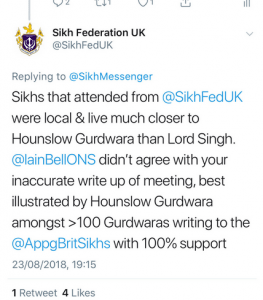
We’ve seen a communication from the APPG for British Sikhs in response to the ONS decision, and it’s clear the SFUK and Preet Gill MP are upset and angry. They have put a lot of effort and energy into lobbying. On August 23rd 2018 (at 19:15) the SFUK put out a tweet suggesting Hounslow gurdwara (Alice Way) was one of the gurdwaras which supported their campaign with a letter written to the APPG.[iii] We asked the Hounslow committee if this was the case or not, and they informed us they did not support the APPG and believe Sikhism is a religion not an ethnicity. They had also made this clear in a meeting with the NSO, SFUK and Iain Bell from the ONS. Given the SFUK announced 112 gurdwaras have supported the APPG, and this figure has been reported in the press and provided to the ONS, we would like to see 1. The briefing given to gurdwaras by the APPG 2. Redacted versions of the letters received 3. The specific question asked to elicit a response. We have serious concerns that gurdwaras may have not been provided with a balanced view of the subject matter, which could lead to survey bias, and if there are 112 gurdwaras signed up in the first place.
The APPG have alleged the ONS has ‘misrepresented’ the survey of Gurdwaras they conducted.[iv] This is a serious allegation and given what we know about Hounslow frankly risible. Secondly, they go onto to claim the survey and response from 112 gurdwaras have an official membership of 107,000 and an estimated congregation of 470,000. How they came to these figures is not clear, however we can see that 470,000 is a larger number than the total population of Sikhs from the 2011 Census (423,000).[v] 112 gurdwaras is approximately 1/3 of the total number in the UK,[vi] so the suggestion is that more than the total population of British Sikhs (up to 2011) attended a fraction of UK gurdwaras. It is not clear whether the figures include overseas visitors or non-Sikhs coming to gurdwaras, or gurdwaras in Scotland which has a separate Census. They suggest 100% of gurdwaras that responded to their survey did so as an ‘independent decision’, however this again is unclear, until we see the particulars of the briefing provided to them by the APPG.
John Pullinger’s assurances to Preet Gill MP
What the APPG remarkably failed to disclose was a letter addressed to their Chair from the UK’s National Statistician John Pullinger. He has given Ms Gill significant reassurances that although the ONS don’t recommend an ‘ethnic’ tick box, they will support those who want to write in Sikh as an ethnic group under ‘other’. He informs her, ‘I want to assure you that everyone who wishes to identify as Sikh will be able to do so under our proposals for the Census.’
He describes the various options for Sikhs who may want to say they are ‘ethnically’ Sikh with the development of ‘search-as-you-type’ functionality online, which will assist those who want to fill the ‘other’ box under ethnicity. He confirms data outputs from both religion and ethnicity will be analysed and will, ‘increase the analytical offering and outputs for those who identify as Sikh.’ He also confirms there is a commitment to utilise the Digital Economy Act 2017 for data linking research purposes, so information about Britain’s Sikhs will be available across public services, not just Census collected data.
There are other clear commitments which aim to improve data collection beyond purely the Census, whilst encouraging collaboration with local authorities and British Sikhs. The ONS want to improve data collection and promote wider Census participation, as well as ‘raise awareness of the options of writing in their identity in the ethnic group question’.
We are surprised Preet Gill MP or the SFUK run APPG for British Sikhs have failed to mention this accommodating and conciliatory letter. The offer to help Sikhs who would still like to be categorised under a Sikh ethnic group is serious and goes much further than expected. It appears they are so obsessed with a tick box, they have lost sight of their initial goal.
[Ends]
[i] https://www.gov.uk/government/publications/the-2021-census-of-population-and-housing-in-england-and-wales
[ii] https://www.ons.gov.uk/census
[iii] http://nsouk.co.uk/why-we-need-the-appg-for-british-sikhs-to-be-transparent-with-their-ethnicity-campaign/
[iv] https://twitter.com/appgbritsikhs?lang=en
[v] https://www.ons.gov.uk/peoplepopulationandcommunity/culturalidentity/religion/articles/religioninenglandandwales2011/2012-12-11
[vi] https://www.bbc.co.uk/news/uk-england-21711980
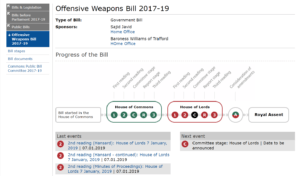 Our Director Lord Singh intervened in a debate on the second reading of the Offensive Weapons Bill earlier this week to ensure the Sikh practice of honouring people with full-length kirpans is fully protected under law. As it stands, the draft Bill retains the existing legal protection for the religious use of a kirpan, however ‘honourary’ kirpans – given to dignitaries (not just Sikhs) as an appreciation of service, would fall outside the proposed legislation and be criminalised. This concern was not addressed in either the Commons debate or in the minor wording change in the ‘photo op’ meeting of the Sikh Federation UK (SFUK) with government officials.
Our Director Lord Singh intervened in a debate on the second reading of the Offensive Weapons Bill earlier this week to ensure the Sikh practice of honouring people with full-length kirpans is fully protected under law. As it stands, the draft Bill retains the existing legal protection for the religious use of a kirpan, however ‘honourary’ kirpans – given to dignitaries (not just Sikhs) as an appreciation of service, would fall outside the proposed legislation and be criminalised. This concern was not addressed in either the Commons debate or in the minor wording change in the ‘photo op’ meeting of the Sikh Federation UK (SFUK) with government officials.

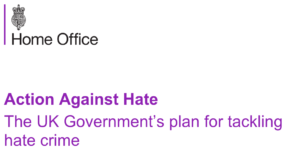
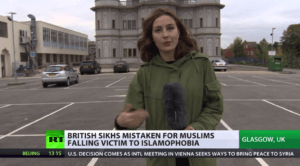

 Last Wednesday the NSO held its UK Parliament Week event in the House of Lords with guest speakers Tanmanjeet Singh Dhesi MP, Mandip Sahota and Gurpal Virdi.
Last Wednesday the NSO held its UK Parliament Week event in the House of Lords with guest speakers Tanmanjeet Singh Dhesi MP, Mandip Sahota and Gurpal Virdi.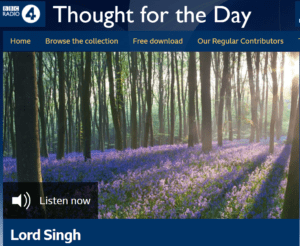 This weekend, Sikhs will be celebrating the birth anniversary of Guru Nanak, founder of the Sikh faith. He lived at a time of conflict between the two main religions of the subcontinent, Hinduism and Islam, with each claiming superiority of belief. An important thrust of his teaching was to show that despite superficial differences, both faiths recognised common ethical values of truth, justice and responsibility. He also emphasised the oneness of our human family and the dignity and full equality of women.
This weekend, Sikhs will be celebrating the birth anniversary of Guru Nanak, founder of the Sikh faith. He lived at a time of conflict between the two main religions of the subcontinent, Hinduism and Islam, with each claiming superiority of belief. An important thrust of his teaching was to show that despite superficial differences, both faiths recognised common ethical values of truth, justice and responsibility. He also emphasised the oneness of our human family and the dignity and full equality of women.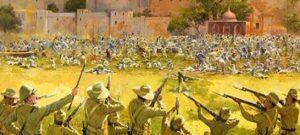
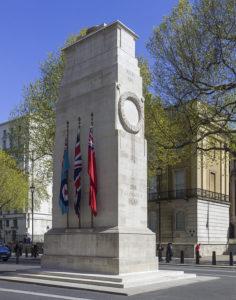
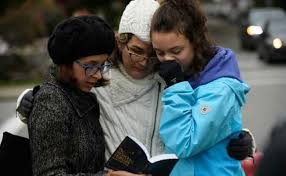 We would like to pass on our deepest condolences to Jewish communities around the world for the terrorist outrage in Pittsburgh, which resulted in the killing of 11 innocent worshippers at the Tree of Life synagogue on Saturday.
We would like to pass on our deepest condolences to Jewish communities around the world for the terrorist outrage in Pittsburgh, which resulted in the killing of 11 innocent worshippers at the Tree of Life synagogue on Saturday.